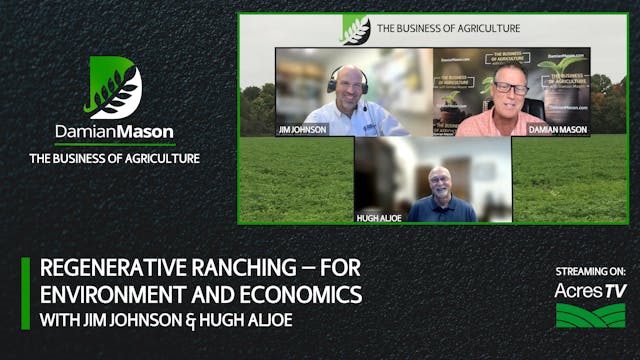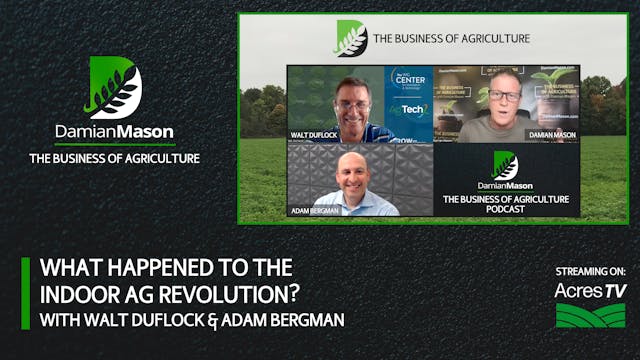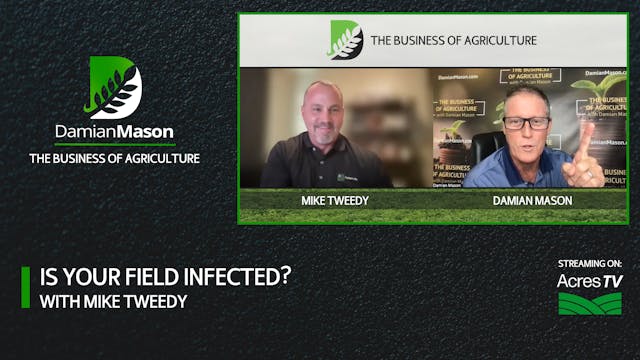Is The Future of Silage Bagged for Efficiency & Environment? | Damian Mason
Damian Mason - The Business of Agriculture
•
43m
Silage — in case you’re unfamiliar— is high moisture forage chopped and stored for cattle feed, principally dairy animals. It derives its name from the fact we used to blow this forage into silos. That’s not done much anymore for reasons of safety, practicality, and scale. The most common method of ensiling and storing cow feed involves piling it on concrete, packing it with a large tractor, then covering with plastic. For reasons of economics and environment — which aren’t always opposing forces — the stack and pack silage practice may be changing. Large silage bags such as the 14 x 500 footers used by Iowa dairyman Anthony Nunes reduce feed waste, improve feed quality, and reduce greenhouse gas emissions. Mr. Nunes joins nutritionist Marc Etchebarne and environmental consultant Jake Schmitz to discuss the future of feed storage.
Sponsored by:
Pattern Ag https://www.pattern.ag/
AGvisorPRO https://getagvisorpro.com/
Truterra https://www.truterraag.com/
Up Next in Damian Mason - The Business of Agriculture
-
Regenerative Ranching — For Environme...
Regenerative practices have become a new area of focus in production Agriculture. But what about our grazing lands — are we managing those lands for healthier soil, a healthier environment AND a healthier bottom line? Hugh Aljoe and Jim Johnson with Noble Research Institute, an Oklahoma-based ran...
-
What Happened to the Indoor Ag Revolu...
A few years ago there was a great deal of hype surrounding Controlled Environment Ag (indoor farming). Money was pouring into the space from outside investors. Along with the money came the media coverage, which brought more money and more hype. According to some, we were just a short time away f...
-
Is Your Field Infected? | Damian Mason
My farmer friends at XtremeAg say, “The limiting yield factor isn’t the seed, it’s probably us.” Well, that’s not necessarily the case — another huge limiting yield factor is loss due to pathogens. With so many nasty diseases out there, our problem has often been misdiagnosis or a failure to trea...



